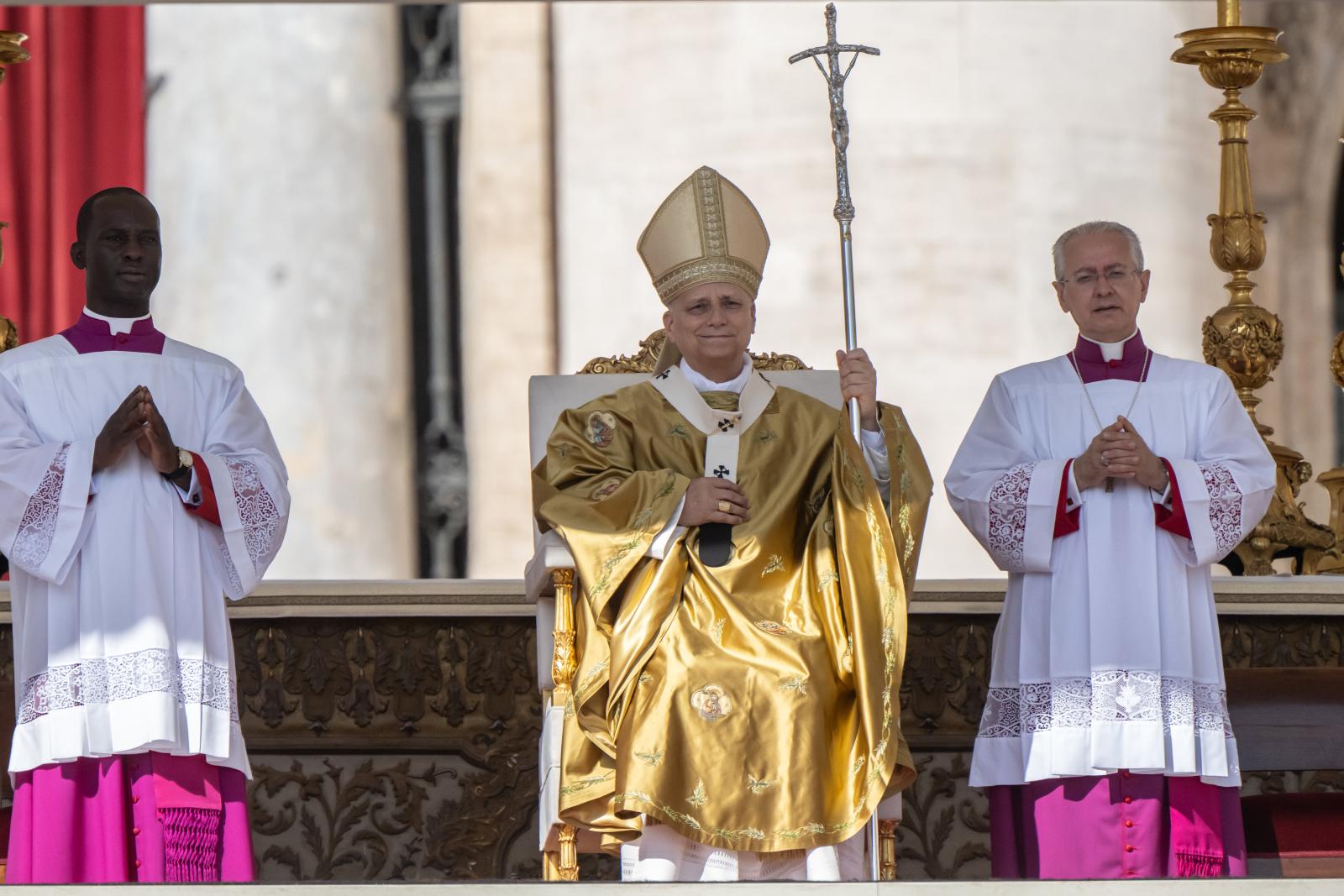Richard Harries, Director of Caritas Westminster, reflects on Pope Leo XIV’s first Apostolic Exhortation, Dilexi te, and on its relevance for charitable work in our diocese.
For you always have the poor with you, and whenever you want, you can do good for them…
(Mark 14:7)
There are many reasons why men and women of goodwill prefer these days to avoid talking about “the poor.” Poverty, they rightly point out, can often be a transitory state, and to speak of 'the poor' as a lumpenproletariat can be a source of stigma and great shame. These are admirable sentiments and come from a place of generosity.
Nevertheless, in his first Apostolic Exhortation, Dilexi te, Pope Leo is having none of it: ‘For Christians,’ he writes, ‘the poor are not a sociological category, but the very "flesh of Christ"’ (§ 110). What on earth could he mean by this? Who does he think the poor are? And hasn’t the neoliberal economic model of the last 30 years solved the problem of global poverty anyway?
In fact, the Holy Father has a much broader conception of what constitutes poverty. It is not just 'the poverty of those who lack material means of subsistence,' but also
the poverty of those who are socially marginalised and lack the means to give voice to their dignity and abilities, moral and spiritual poverty, cultural poverty, the poverty of those who find themselves in a condition of personal or social weakness or fragility, [and] the poverty of those who have no rights, no space, no freedom. (Dilexi te, § 9)
The Pope is reminding us of a core Christian insight that goes back all the way to the Sermon on the Mount. Indeed, our Protestant brethren may well point us to the work of American theologian Bryant L. Myers, who wrote persuasively about the ‘web of poverty’ as far back as 1999.
Even on the narrow metric of the neoliberal model, the Pope rightly points out that ‘the claim that the modern world has reduced poverty is made by measuring poverty with criteria from the past that do not correspond to present-day realities’, and goes on to ‘state once more that inequality “is the root of social ills”’ (Dilexi te, § 13, 94).
So how must we respond? We must respond, first and foremost, with love, and crucially we must respond to the need that lies directly in front of us, just as the Good Samaritan responded to the man he encountered on the road to Jericho. Without disregarding the structural injustices that can lock us into poverty, Pope Leo reminds us that ‘In the early Christian community, acts of charity were performed on the basis not of preliminary studies or advanced planning, but directly following Jesus’ example as presented in the Gospel’ (Dilexi te, § 29).
There really is so much in Dilexi te that is worthy of our attention here in the Diocese of Westminster. When Pope Leo writes that ‘the most important way to help the disadvantaged is to assist them in finding a good job, so that they can lead a more dignified life by developing their abilities and contributing their fair share’ (§ 115), I immediately think of our Seeds Hub in Wembley, which supports aspiring business founders experiencing social inequalities.
Similarly, when he observes that ‘The act of rescuing someone from slavery and captivity is seen as an extension of Christ’s redemptive sacrifice’ (Dilexi te, § 60), my mind turns to our work upholding the dignity of the women at Caritas Bakhita House. And when the Pope reminds us of the importance of almsgiving and St Paul’s counsel that ‘God loves a cheerful giver’ (2 Corinthians 9:7, quoted in Dilexi te, § 33), I can only say ‘Amen!’
I encourage you to take the time to read Dilexi te: you will find yourselves inspired by the stories of many saints who gave everything to support the Church’s charitable mission, and challenged to reflect on what more you can do to love your neighbour.
‘I often wonder,’ writes Pope Leo, ‘even though the teaching of Sacred Scripture is so clear about the poor, why many people continue to think that they can safely disregard the poor… Either we regain our moral and spiritual dignity or we fall into a cesspool’ (Dilexi te, § 23, 95, my italics).
Let us then heed the Pope’s warning to us, and draw from his words the courage both to speak about the many forms of poverty present around us, and ultimately take action to remedy them.
Read the full text of Dilexi te here.
Support the work of Caritas Westminster.
Image: Mazur/cbcew.org.uk
